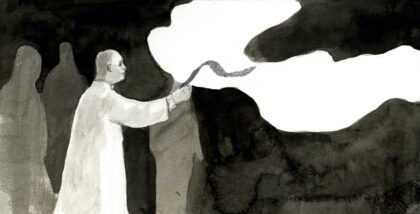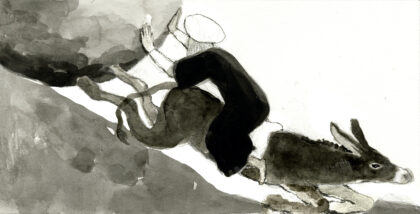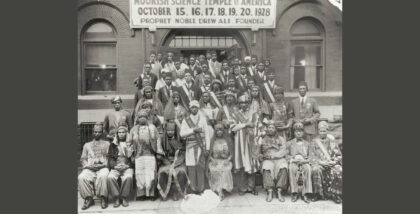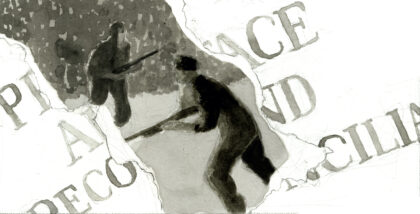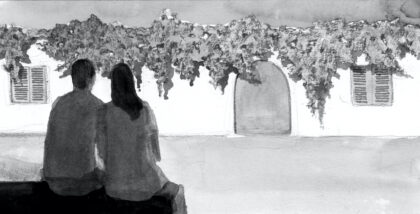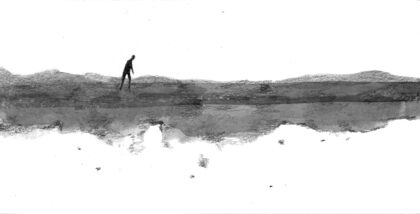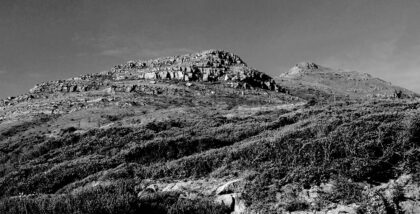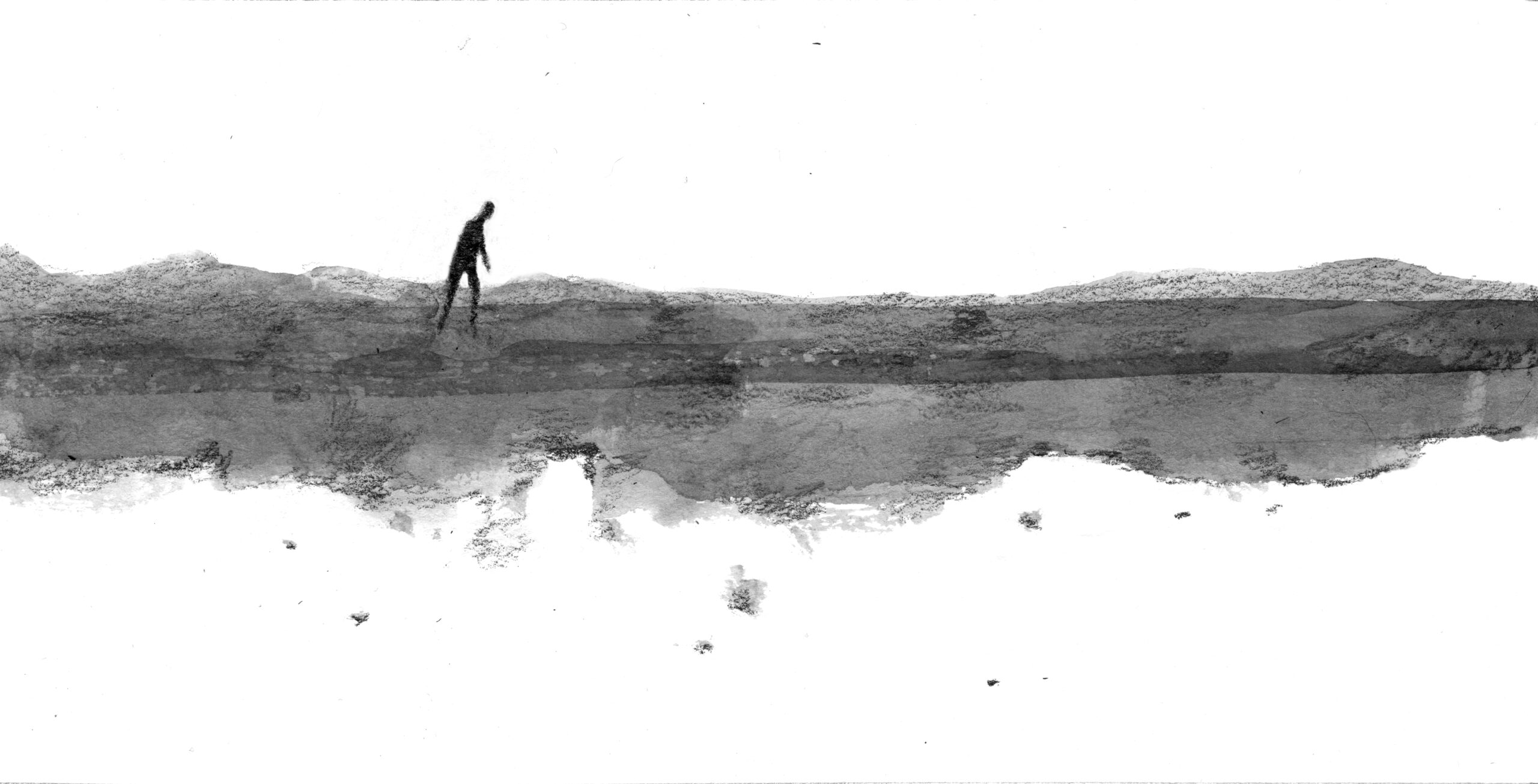 Art by Jia Sung
Art by Jia Sung
i.
I walk across the handled earth;
it sublimates through a forest of vectors.
Shards of air stir like ornamental
rhetoric—the stifled body of the sky
anointed across cement communions.
Land emerges as pulp
as blank deed
as white deeds.
Land written in the image
of empire, torn into
irreconcilable frequencies.
ii.
The porous shores of Lake Ontario
await the inland waters, yet
there are no words that can
make it across. I long for the way
the waves echo without history.
The silent force of frantic bursts.
I hold my tongue close.
iii.
Only sound can consider
depthness of tract
vastness of tract.
My mother also came from an
island measured by gunshot.
You learn that one can split atoms
but you cannot split the measure
from what it measures.
And what is the measure of blankness?
On measured land, this is
how you read an apology:
“There is no way to undo the past but with this historic settlement we can begin to write a new chapter together where trust is rebuilt, treaty rights are celebrated and our ongoing treaty relationship is strengthened for the benefit of seven generations to come.”
Author’s note: Several treaties operate over Tkaranto, the Kanienʼkéha word for Toronto. This poem references the Gunshot Treaty, a pre-confederation agreement now included in the Williams Treaties of 1923, covering the eastern part of Tkaronto, the area where I grew up and where my parents arrived as refugees. It was so named because it covered land north of Lake Ontario as far as a person could hear a gunshot. This way of demarcating land made me reflect on how white colonial enforcements of scale unilaterally reduce humans and nonhuman beings into governable objects. How, then, do we grow relationships that exceed and resist these reductions?
